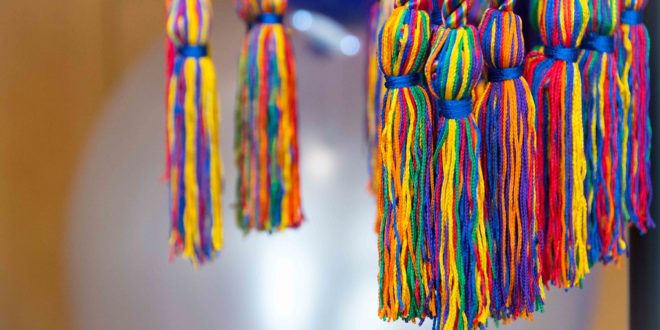Everyone is familiar with graduation. Students step across the stage to receive their diploma, and celebrate the end of their academic careers. For some students, it’s a wonderful day. For others, it may be something more painful. Because graduation and college can be painful for some students, there’s a second ceremony that takes place in universities all across America.
Lavender Graduation is a graduation ceremony for LGBT university students. It was created by Dr. Ronni Sanlo, an author and educator, and a lesbian who came out in 1979, two years after the repeal of a gay rights law in Florida, the state that she lived in at the time.
After she came out, Dr. Sanlo lost primary custody of her children, and later had no custody of them. According to her bio on her website, her children feared her and didn’t want to see her, because they had been told they would catch AIDS from her. Elsewhere on her website, she says that she was unable to attend her children’s graduation due to her sexual orientation.
The idea of Lavender Graduation also came from her students, who had also talked to her about how difficult their college careers had been. Dr. Sanlo wanted to give them a positive experience as they exited college.
As for the name, the Human Rights Campaign asserts that it has a historical meaning. In the Holocaust, gay men wore pink triangles and lesbians wore black triangles. According to the HRC, the combination of these colors led to lavender becoming a symbol for LGBT people, instead of a symbol of hatred.

The University of Tennessee at Chattanooga has its own Lavender Graduation, which is hosted by Spectrum, the LGBT organization on campus. The facilitator of Spectrum, Mary Minnick, says that UTC’s Lavender Graduation is a good time. “It’s formal with some speeches and naming, but it’s mostly a little party with gay decorations and spectrum members and such.”
According to Minnick, the graduation celebration has grown in her time at UTC, with more decorations and people attending every year. She says it’s a great opportunity to celebrate LGBT people’s accomplishments.
Co-facilitator of Spectrum, Lilly Roberson, says that UTC’s Lavender Graduation is small, with only two to three graduates, and new, only existing on campus for around four years. To her, however, it is still important.
“Queer students in the south have to work through a lot to get to graduation,” Roberson said. “Many of us had to deal with being kicked out of our homes, facing harassment and discrimination, and trying to be out in an area where that is unsafe, all while trying to earn a degree.”
Today, the world is much more accepting of LGBT people than it was years ago when Dr. Sanlo came out. Just five years ago, America reached the milestone of marriage equality. Things are not always rosy for LGBT people in America, though.
According to a 2015 study by the American Association of Universities, three in four undergraduate LGBT students will experience sexual harassment in college. One in five will fear for their safety because of their gender identity or sexuality.
From the 1995 inception of Lavender Graduation to now, the idea has spread among numerous colleges. Today, according to Dr. Sanlo’s website, more than 500 colleges and universities have Lavender Graduation events for their students.

Samantha Lorinc is a UTC student who participated in last year’s Lavender Graduation. She thinks it’s an important event, because it helps people feel good about their accomplishments, and that people support them for who they are.
“It feels really nice to be specifically recognized within a community I’m a part of,” said Lorinc, “and it’s cool that as a whole it’s a way to recognize the accomplishments that people within the LGBT community can make.”
This year is tricky considering the global COVID-19 pandemic, and as of now there is no word as to whether Lavender Graduation will take place, or at what point it will take place.
 Mocs News Reporting the news that matters most to UTC
Mocs News Reporting the news that matters most to UTC


